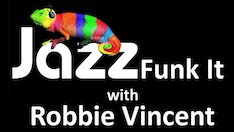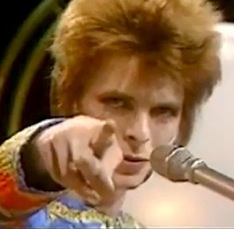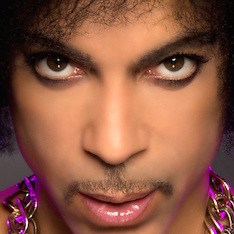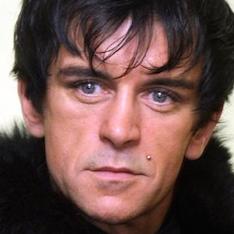
Underground publicity: Derek Ridgers with lavish poster treatment for his photo-book published jointly by Damiani and Transport for London. (Pic by Shapersofthe80s)
❚ THIS FRIDAY AT THE V&A MUSEUM, London photographer Derek Ridgers will try to explain the power of his touching yet confrontational images of London youth taken in the transformational decade of the 1980s. His newly published book 78–87 London Youth can be viewed online. He is best known for these documentary portraits taken on the streets and in the clubs by night, though he has also snapped celebs from James Brown to The Spice Girls, Clint Eastwood to Johnny Depp, as well as Tony Blair, gangster ‘Mad’ Frankie Fraser, artist Julian Schnabel, writer Martin Amis, fashion designer Vivienne Westwood and more.
The recessionary 70s had precipitated a drone age of rocketing unemployment in the UK, threatening no jobs for school-leavers, ever. Yet from this black hole burst a passionately tribal youth culture that was to create the Swinging 80s, an era of optimism, marked by hedonistic good times and a flair for exhibitionism that played up to Derek’s camera. Ambition and self-improvement were the ultimate goals of the young then, in sharp contrast to the cynical narcissism of today’s lost children.

Twinkle Bunty comments on this Sacrosanct club pic by Ridgers posted at Facebook: “Just trotted over to Foyles and bought Derek Ridgers’ fab new book. Thrilled to find this pic from 1985 of me and Billie Madley proving that the 80s were ALL about the eyebrows. Mine were jet black Rimmel and Billie’s were red BIRO.” Another from Laura Whitcomb: “When you shaved that eyebrow it was epic… That Westwood shirt and suit and of course those ear muffs your obsession – and the inimitable final touch of a Fosters with a baby blue straw.” Plastic bath cap: Billie’s own.
❚ IN OCTOBER 1982, I INTERVIEWED DEREK RIDGERS while writing the massive survey of London’s newly exploding nightlife phenomenon which became The Face’s cover story, The making of UK club culture in February 1983. Direct from my original notes, here is Derek’s perceptive analysis which helped inform my thinking about the turmoil that was transforming British youth culture…
Derek talking: “The depression of the late 70s made the future oh so inevitable. But from the Blitz club period onward [1979], the feeling has been different. A reaction of ambisexual kitsch. It’s an honesty with the way you look and what you want to do. There’s an enthusiasm to investigate the possibilities. There’s no sense of inevitability.
“As a photographer, I go as the casual observer and stand in the shadows. When I first went to those Tuesday nights at Billy’s [1978] it was like walking into a Hieronymous Bosch painting – furtive but lively, very decadent reflecting what they were into, and yet with a sense of oneness, a dedication that’s never been equalled since.”
In 1980 the Blitz leaders had moved on to another Covent Garden club called Hell which Derek said “was similar but more decadent because they tried to keep it to themselves. In its final weeks, only out-of-towners were going to the Blitz, because by then the media had blown away the furtiveness”.
Click any pic to launch slideshow
In 1982 Steve Strange and Rusty Egan began fronting the 1,600-capacity Camden Palace and the Pose Age went public. Ridgers said then: “At the Palace poses are adopted, yet it’s probably more interesting than the Blitz or Billy’s because it’s more honest… 90% are regulars, 9% out-of-towners, and 1% could be any type of person who’ll choose to go clubbing there, but go nowhere else except their own pub. Sometimes they’re out of their depth and try to dress as they think is expected – they bring with them an unconsidered primitiveness.
“Men are wearing dresses now but not pretending to be women. They are proud to be men – that’s fairly modern.” In autumn 1982 Boy George was in the charts with Culture Club’s first single. “George wants to look pretty, rather than handsome. He asks me whether I find him attractive and I have to pretend he’s a girl and give him an appraisal – which I don’t mind. I don’t feel threatened.”
“What’s important at the Palace is feeling special, being noticed – in a sea of other people. A good club has become a place to go for the right social reasons, rather than just to hang out.”
➢ View more Ridgers portfolio at his website
ESSENTIAL READS
➢ Blitz kids and the birth of the New Romantics – my overview for the Observer Music Monthly
➢ 69 Dean Street and the making of UK club culture
– for The Face magazine, here at Shapersofthe80s



















 “Jarvis felt like a natural fit with the Faber sensibility, both as author and editor, and I’m sure the small list of books he will develop will represent his eccentric and yet popular touch,” said publishing director Lee Brackstone. “We now have an excellent portfolio of authors from the pop world and our intention is to develop these relationships and continue to build a reputation as the home for exciting and original writing on music.”
“Jarvis felt like a natural fit with the Faber sensibility, both as author and editor, and I’m sure the small list of books he will develop will represent his eccentric and yet popular touch,” said publishing director Lee Brackstone. “We now have an excellent portfolio of authors from the pop world and our intention is to develop these relationships and continue to build a reputation as the home for exciting and original writing on music.”








